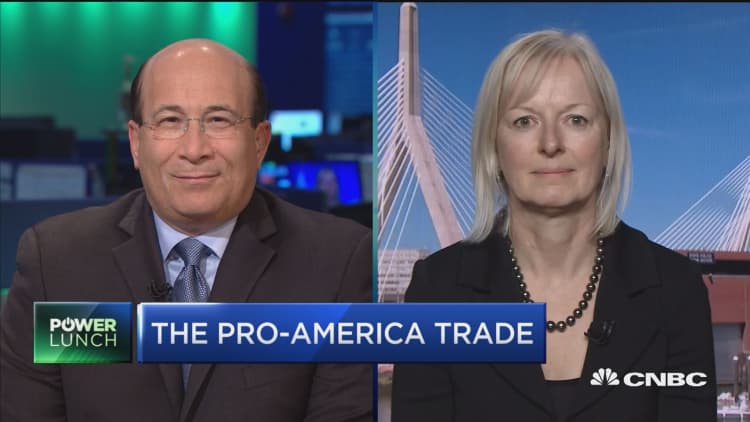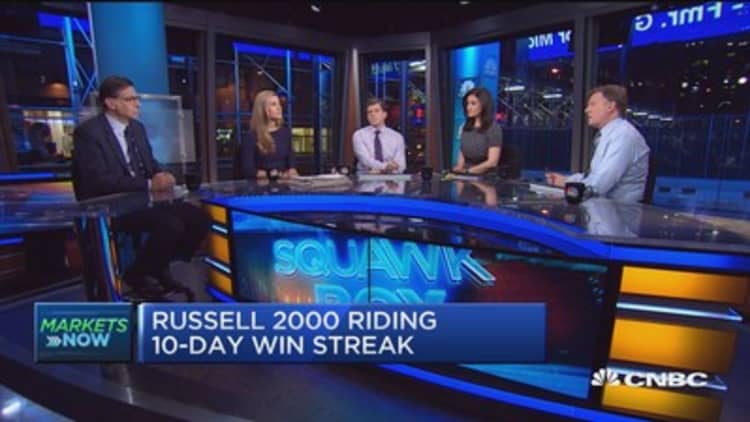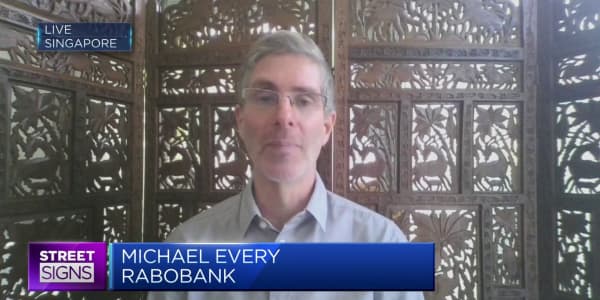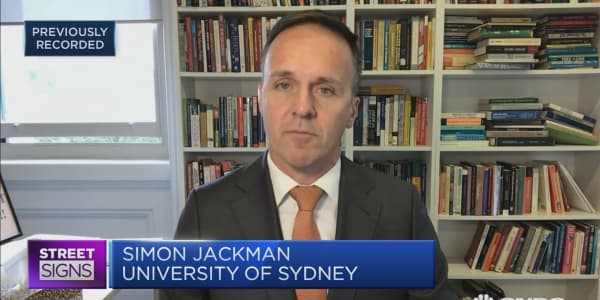
Wall Street pros have been predicting the "Great Rotation" from bonds into stocks for six years. With Donald Trump's election victory and the Republicans' hold on control of Congress, the time finally may have come.
Money flocked into equity and out of fixed income funds last week at a near-record pace as Wall Street digested the Republican billionaire's stunning upset in the Nov. 8 presidential balloting. Though one week hardly establishes a long-term trend, the numbers were stunning, particularly considering that pretty much everyone on the Street thought a Trump victory would trigger an immediate market slide.
Stock-based funds took in $28 billion, the largest inflow in two years and, by one count, the third-most ever. Bond funds saw just the opposite, with $18 billion in outflows, notching the biggest move in 3½ years, according to Bank of America Merrill Lynch.
The disparity between bond and equity flows for the week was the biggest ever.
Michael Hartnett, BofAML's chief investment strategist, coined the "Great Rotation" term in 2010. However, the trade hasn't materialized. The past decade in total has seen $1.5 trillion in inflows to bonds and near-flat flows for equity funds.
Hartnett called last week's moves a "violent rotation" and pointed out a "bond bloodbath" that included money leaving not only U.S. fixed income but also record redemptions in emerging market bonds. Municipal bonds also saw their largest outflows in 3½ years and Treasurys saw their highest outflows in a year.

In the time since Trump's win, there's been a decided shift in sentiment from caution to exuberance. The market has made a succession of new highs, with the Nasdaq briefly hitting a fresh record Friday morning.
Jeffrey Saut, the chief market strategist at Raymond James, noted the market's ability "to remain supported even as so many investors thought there was little value to owning stocks."
"The pervasive negativity underlying the system was discovered everywhere you looked, from headlines, to sentiment surveys, to mutual fund flows, but the market refused to buckle under the pressure," he said. "Well, since the week of the election, the tide feels like it may finally be turning."
A deeper dive into the weekly flows turns up a few other important trends: Passive investing continues to dominate, with investors pouring a one-week record $34 billion into exchange-traded funds. Mutual funds, most of which are actively managed, saw outflows for the 37th-straight week, according to BofAML.
Bank stocks rallied sharply off the Trump win, with expectations that his policies would generate inflation, higher interest rates and a stronger U.S. dollar. Financial funds took in $7.2 billion for the week, also a record. Materials saw the largest inflows in three years, while Treasury Inflation Protected Securities funds saw inflows, as did bank loan funds.
The moves come amid a sharp spike in optimism as measured through sentiment surveys.
The American Association of Individual Investors reported bullishness jumped 7.8 percentage points to 46.7 percent, the highest level in 21 months and well above its historical norm of 38.5 percent. Bearishness fell 2.8 percent to 26.6 percent, the lowest level since mid-August.





